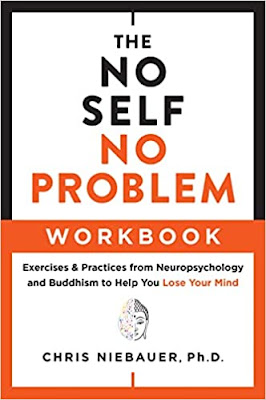[One of my favorite blogs, Astral Codex Ten, has a book review contest, and this year I decided to enter it with a review of Christopher Beckwith's The Scythian Empire, the most interesting books of ancient history I have read in years. There were hundreds of entries, and over the weekend, 12 finalists were named. I'm not one of them, so I'm one of the losers in the contest. This means I am now free to post my review here. I know there's no direct connection to this blog, but it seems like the kind of interesting book that might have interested Robert Anton Wilson or Robert Shea. -- The Management.]
Every so often, a history book changes the way we think about a certain era. The World of Late Antiquity, a slender, heavily illustrated book by classicist Peter Brown, gave a name for a fascinating period of history, juxtaposed between “ancient history” and “medieval history,” when public baths and chariot racetracks in Constantinople, the New Rome, stood near large Christian churches. Kyle Harper’s The Fate of Rome: Climate, Disease, and the End of an Empire offered a new answer to the perennial “Why did Rome fall?” question, substituting climate and plague for the older answers that emphasize Germanic invasions, high taxes or widespread lead poisoning.
Christopher I. Beckwith’s The Scythian Empire: Central Eurasia and the birth of the classical age from Persia to China, although scholarly and aimed largely at fellow linguists with a specialty in Asia languages, also offers an interesting thesis that might well attract many nonspecialist readers.
The Scythians don’t get much press. Other nomadic horse archers who built big empires, such as the Huns or the Mongols, get a lot more books written about them. But Beckwith wants to change that with his monograph published in early 2023 by the Princeton University Press.
It’s not as if the Scythians are completely obscure. Anyone with a reasonable acquaintance with ancient history will be aware of them. Herodotus wrote about them, and other historians described their battles with foes such as Alexander the Great.
Beckwith argues that the Scythians pioneered the effective use of horse archery using powerful compound bows and possessed an empire spread across much of Asia. Seen in this light, the Scythians were the precursor of better-known empires founded by nomads, such as the Hunnic empire of Attila, or the Mongol empire founded by Genghis Khan.
The success of the various horse archer armies would seem to challenge the “Western way of war” thesis of classicist Victor Davis Hanson, which emphasizes the superiority in ancient times of armies that relied on hand to hand fighting by heavily armed foot soldiers. The Eastern Roman Empire shifted largely to a reliance upon cavalry after having to deal with the Huns, and mounted archers played a large role in the Emperor Justinian’s reconquest of North Africa and Italy for the eastern empire. Certainly the outcome of the Battle of the Nedao, which ended the Huns’ hegemony over much of Europe, must have been a relief to the Roman Empire as the Hunnic empire fell apart after Attila’s death.
But despite their innovations in mobile warfare, the Scythians apparently lack a publicist. There’s no compendium of alleged Scythian wisdom comparable to books such as Leadership Secrets of Attila the Hun.
But beyond warfare, Beckwith argues that the Scythians have not been given their due in classical culture. In his account, the Scythians largely began ancient philosophy in Greece, India and China, originated monotheism, helped to create the Persian Empire that was conquered by Alexander the Great, and created the first Chinese empire, creating “China” as an entity. It was the Scythians, Beckwith contends, who were behind the Classical Age in much of Europe and Asia.
The Scythian Empire is not the first time Beckwith has penned a book that attempts to rewrite the standard historical narrative. For example, in Greek Buddha: Pyrrho's Encounter with Early Buddhism in Central Asia, published in 2017, Beckwith wrote about Pyrrho, the Greek philosopher who traveled with Alexander the Great’s army, which reached India. Pyrrho met Buddhist teachers and Buddhism had a large influence on Greek philosophy, Beckwith contends. I plan to hunt up some of Beckwith’s other books and read them, too. His Empires of the Silk Road sounds like it has much to interest people like me who are not academics.
But the new book on the Scythians seems like an especially bold attempt to change the usual claims about ancient history. Beckwith says that while the ancient Greeks “developed a very brilliant culture,” it is inaccurate to suggest they did so in isolation, nor did the Chinese create their culture “out of nothing.” The influence of the Scythians has been unfairly omitted from the record, he argues.
Beckwith, 77, is a distinguished professor in the Department of Central Eurasian Studies at Indiana University. He specializes in Asian languages and knows Chinese, Tiberan, Aramaic, Persian, Japanese, Greek, Koguryo (an ancient language of Korea) and likely other languages,
He is working on a forthcoming book on Aramaic, the language Jesus spoke.
Beckwith lays out much of his thesis in a brief Introduction. Beckwith's revisionism starts on page 1 of his book, which states that before the large empires of the Huns, the Turks and the Mongols, Scythians created “the world’s first huge empire,” stretching from the Danube River in Europe to north China. He also asserts a Scythian cultural hegemony in the same Introduction:
“Studying the earliest known teachers of philosophy, who were all Scythian emigrants living outside Scythia, unexpectedly reveals the specific philosophical ideas that produced the Age of Philosophy, the hallmark of the Classical Age.”
Above all, Beckwith contends that the Scythians had a huge but largely unrealized influence on culture, religion and political systems over a very wide area of the world. He argues, for example, that the reason most religious people belong to a monotheistic religion can ultimately be traced back to the Scythians.
Beckwith contends that the Scythians were monotheists, with an overarching creator god who made the world and was the “boss” of local, lesser gods. The Scythians invented feudalism and had a parallel political system in which a great king ruled atop a system of lesser kingdoms who owed fealty to the leader of the empire. The Persian empire inherited this system, and various tribal groups from the region originally occupied by the Scythians brought feudalism to western Europe when they occupied the former western Roman Empire, he contends.
Scythian monotheism gave rise to Zoroastrianism, the first world religion, and also influenced the shift to monotheism in ancient Israel, Beckwith contends. On page 59, he writes that Scythian military forces opposed to polytheism plundered the temple of Aphrodite in what is now Ashkelon, in modern Israel, and says that Scythian campaign “is surely connected to the sudden shift by the polytheistic Hebrews of Palestine to Heavenly God monotheism, a movement led by their prophet Jeremiah and his contemporary King Josiah at precisely this time. The campaign gave the Hebrews firsthand knowledge of the Scythians.”
Beckwith says that the Scythians conquered Media, at that time a decentralized collection of various peoples, imposing the Scythian language, dress, weaponry and style of warfare, much as the Romans converted areas such as Gaul and Hispania into Latin speaking Roman provinces. The Scytho-Mede empire was then succeeded by the Scytho-Mede Persian Empire of Cyrus, Darius and their successors. Beckwith argues that the Persian empire that attacked Greece and was later conquered by Alexander was essentially a successor state of the original Scythian empire of Eurasia, relying upon Scythian cavalry and Scythian horse archery tactics for much of its power.
Similarly, in China, Scythians conquered a section of what would now be considered modern China. Beckwith says the first Chinese emperor, Ch’in shi huang ti, was a member of the Scythian royal line, descended from royalty from both his mother and father.
Much of Beckwith’s arguments depend on his formidable linguistic skills.
He says, for example, that in various languages across much of Asia, including in China and Persia, the name of the Scythian royal line, variously given as Aria, Ariya and Harya, was used as the name of the legitimate, local line of kings. Beckwith says this term for royal rulers was so influential it was even used by peoples who did not speak a variant of the Scythian royal language, much perhaps as the term for a Roman emperor, Caesar, was adopted by rulers with no actual connection to the Roman Empire, such as the Tsars of Russia.
It is perhaps worth emphasizing that Beckwith is not using Aria as an ethnic name, or referring to “Arian” peoples. Here is the relevant paragraph spelling that out (page 126):
“Thus the word was originally innocent of any ethnolinguistic, national, or other meaning, as shown by the fact that Aria Ariya Harya (and its dialect variant Hara) was borrowed and used as an epithet by many peoples of all kinds in much of Eurasia, including the Chinese, Koreans, Türk, Togon, Tibetans, and others who were hardly ‘Iranian’. It has long been accepted that the word did not have its modern ethnolinguistic meaning ‘Iranic-speaking peoples of Iran and other Iranic-speaking countries’ until middle Persian times, over half a millennium after the word’s first attestation and its diffusion around much of Eurasia by the Scythians.”
Beckwith also uses linguistics to back his claim in Chapter 8 that the capital of Media, rendered in English as Ecbatana, and the capitals of two important early Chinese states all had the same name, given to the city by its Scythian rulers. In different languages, and separated by thousands of miles, the royal capitals of Media, Chao and Ch’in all were named Agamatana, he says.
Beckwith also credits the Scythians with creating philosophy as an intellectual discipline. He asserts, “The single most shared feature of Classical culture in all of the nations that experienced a ‘Classical Age’ is the appearance of philosophy in the strict sense, with a capital ‘P’.”
He then asserts that in Greece, the Persian Empire, India and China, the first recorded philosophers were all Scythian. In order of chronology, he says, they are Anarcharsis the Scythian, who taught in Athens; Zoroaster, largely behind the official religion of the Persian Empire; Gautama the Scythian Sage, also known as the Buddha, and Gautama the early Taoist, also known as Lao Tzu, credited with authoring the Tao Te Ching. In other words, Beckwith asserts that the founders of Buddhism and Taoism have the same Scythian name. He even allows for the possibility that they could be the same person, although he says that is unlikely.
“Each one was arguably his adoptive culture’s earliest Philosopher,” Beckwith asserts.
And all of them apparently were Scythians, he says, even if “each is usually treated as if he belonged to a much later dominant local tradition, if he even existed.”
The discussion about the rise of the Classical Age in widely separated cultures recalls the book On the Origin and Goal of History by Karl Jaspers, which was published in German in 1949 and translated into English in 1953. Jaspers coined the term Axial Age for the changes that took place across a wide geographical area during the Classical Age. Beckwith says that Jaspers’ book “to some extent remains a brilliant tour de force.” The flaw of the book, Beckwith argues, is that it doesn’t offer a good explanation for why such changes took place across much of the Earth at about the same time. Beckwith says The Scythian Empire supplies that explanation.
It is difficult for a layman to know how often Beckwith is correct with his assertions. Aside from the difficulty of having to learn old Tibetan and various Chinese, Semitic and Iranic languages to check his work, he is breaking new ground with many of his claims and we’ll have to wait for other scholars to weigh in.
Even a layman who doesn’t know Latin can follow debates over aspects of Roman history, such as the argument over whether the army of the later Roman Empire was weakened by using so many barbarian soldiers as recruits; scholars who do read Latin have been debating the issue for many years in various books. We may have to wait for years for any sort of scholarly consensus to form on the Scythian Empire and its effects.
The Wikipedia article on Pyrrhonism has a subsection on “Similarities between Pyrrhonism and Indian philosophy” which brings up Beckwith’s Greek Buddha book and which covers some of the debate about Beckwith’s conclusions about the influence of Buddhism on Pyrrho and Greek skeptical philosophy. Some of the people who disagree think other strains of Indian philosophy had a larger influence. The debate hasn’t lessened my eagerness to read Greek Buddha.
I can only report that by any standard, Beckwith is a serious scholar. He is a MacArthur Fellow, e.g. the “genius grant.” The number of languages he can read is mind boggling. He is a “distinguished professor” at Indiana University, where by all indications the administration is proud of him and wants to keep him happy. He has a Ph.D. in “Inner Asian Studies,” complementing his master’s degree in Tibetan and his bachelor’s in Chinese. He has numerous awards and honors.
Much of the discussion in his book can be followed by anyone with an interest in ancient history, although the detailed discussions about how a word evolved from the Iranic Scythian language into languages such as Tibetan and ancient Chinese will force many of us to take the professor’s word for it.
When I tried to describe the book to a friend of mine, he asked if the book’s thesis of a huge Scythian empire is “plausible.” Given the existence of the historically attested Hun and Mongol empires, it does seem at least to be possible.
At the end of the day, I can only report that I like to read history for fun, and that I majored in journalism, not Tibetan. The Scythian Empire is the most interesting history book I have read in years. It’s great entertainment, the linguistic discussions notwithstanding.
As you may have gathered, Beckwith is not afraid to offer an opinion on many important points in world history. Here are some of them:
• The Hsiung nu, sometimes identified as Huns, were not Huns but were Scythians.
• Much of the Arthurian legends of Britain come from the Ossetians, an ethnic people descended from the Alans, who in turn were descended from the Scythians. I have no idea if this is credible, but it is certainly known that the Romans stationed auxiliary cavalry units in Britain, a Roman province for centuries.
• A central Eurasian myth about a newborn hero being abandoned in a basket or cradle, floating in a river and being raised by a dog or wolf inspired many later stories, including stories about the early years of Cyrus the Great, Moses and Romulus.
• The names of the Don, Dnieper and Danube rivers all come from the Scythian word for “river.”
• The practice of referring to certain peoples as “barbarians” is intellectually lazy and reeks of a double standard. He writes, in Endnote 184, “Did ‘weak’ and ‘innocent’ Chinese, Romans, etc. conquer huge empires by accident, or by kindness? There is no excuse for the continuing demonization of early Central Eurasian peoples as ‘barbarians’ rather than as people (with the good and the bad) as everyone else.”
There are 190 endnotes in small type at the end of the book, and many of them are just as interesting as the actual text of the book, so this is a book you will read with a finger or a bookmark stuck in the back.
Beckwith is a “big picture” historian in more than one sense (he says the early Scythian empire stretched for thousands of miles from southeast Europe to Mongolia and northern China) and in one of his endnotes, he criticizes historians who stick to narrow controversies: “Many modern historians do not want wide-ranging history that explains things beyond (or even including) their own narrow specializations. However, the world is not simple. It is complex on many levels, not only the close-up level of institutional or ‘bureaucratic’ history, the field of most academic historians today. Yet their studies are hardly meaningful without being placed in a broader context, and it is doubtful that one can do so by attempting to base it solely in bureaucratic-level materials.”
Physically, the Princeton University Press book is a handsome volume which has the features one might expect in a book of this type, including diagrams and tables, illustrations, maps, and reasonably brief Introduction and Prologue chapters that lay out the book’s thesis for nonspecialists. There are endnotes, appendices, a long list of references and an index. There are no suggestions for further reading, although it’s strongly implied that anyone interested in The Scythian Empire should hunt up Beckwith’s other books, such as Empires of the Silk Road.





























